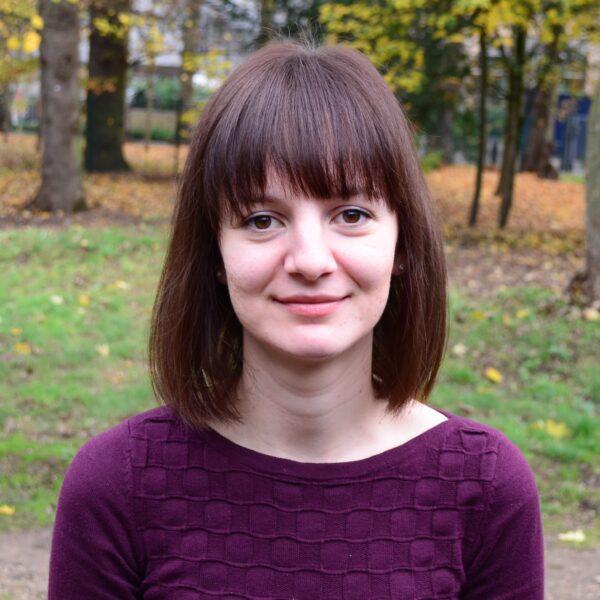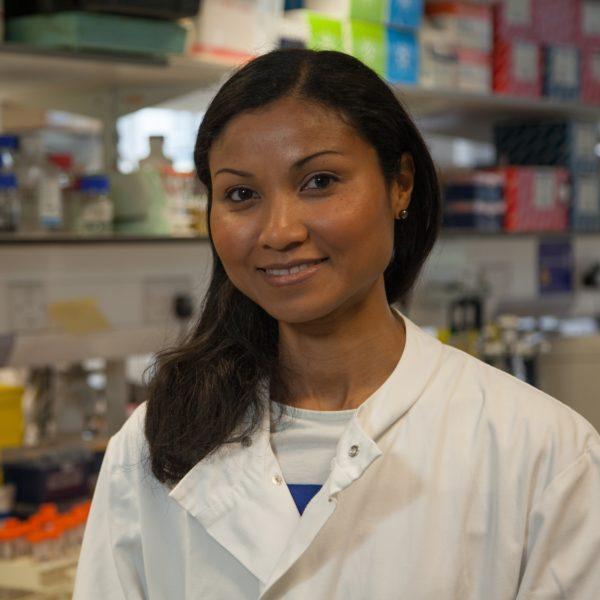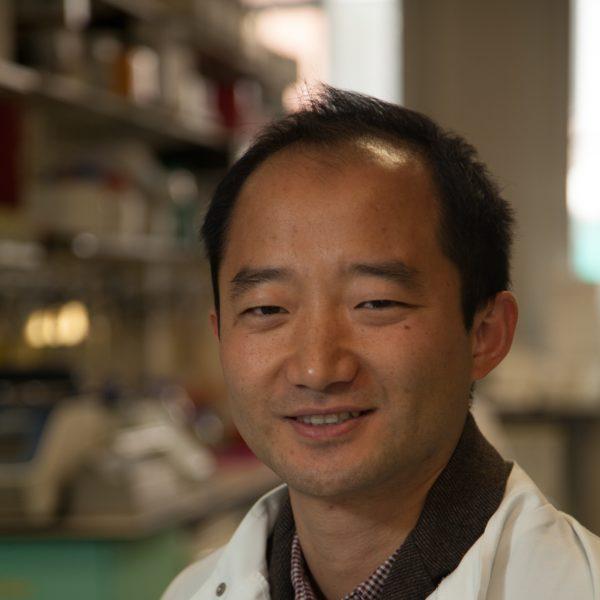Staff Directory
Professor Nick Lemoine
Medical Director, NIHR Clinical Research Network; Professor of Molecular Oncology Director of the Barts Cancer Institute 2003-2024
My groups’ primary research interests are in the genomics and molecular pathology of pancreatic cancer and the development of oncolytic virotherapy.
Professor Claude Chelala
Professor of Bioinformatics
My research interests lie in the area of translational bioinformatics. Current research projects are focused in high-throughput data analysis, integration with clinical data, databases and software development, particularly for pancreatic cancer and breast cancer.
Professor Pedro R. Cutillas
Professor of Cell Signalling and Proteomics
My research group uses unique proteomics and computational approaches to understand how cell signalling pathways driven by the activity of protein kinases contribute to the development of cancer. Increasing this knowledge will be invaluable in advancing personalised cancer therapies.
Dr Mirjana Efremova
Senior Lecturer
We are interested in understanding the cellular and molecular mechanisms that promote cancer cell plasticity and adaptation of tumour cells in metastatic niches and under therapeutic pressure.
Dr Alastair Lamb
Senior Clinical Lecturer, Barts Cancer Institute Visiting Associate Professor, Oxford University Honorary Consultant Urological Surgeon, Guy's and St Thomas' NHS Foundation Trust
Our lab focusses on Spatial Prostate Assessment and the Circulating Environment (aka the SPACE Group). We use cutting edge spatial molecular techniques to unpack clonal dynamics in the development of localised prostate cancer. Alongside this we seek to identify scalable “windows” into clonal lethality using machine learning approaches applied to histology and MRI images as well as ‘liquid biopsy’ of circulating tumour cells (CTCs). Our aim is to transform decision-making in clinical management of prostate cancer so that the right men get the right treatment at the right time.
Professor Jessica Okosun
Professor of Translational Cancer Research
My research focuses on understanding the genetic and molecular mechanisms that underlie the initiation and progression of B-cell non-Hodgkin’s lymphomas in order to define clinically-relevant biomarkers.
Dr Jun Wang
Reader in Genomics and Data Science
I have broad research interests and experience in bioinformatics, cancer genomics and data analytics. These research areas mainly involve developing and applying bioinformatics and computational approaches to analyse large-scale cancer datasets to uncover novel diagnostic and prognostic biomarkers. I also lead the Cancer Research UK Barts Centre Bioinformatics Core Facility.
Dr Maryam Abdollahyan
My research is focused on Machine Learning with applications in Bioinformatics and Health Informatics, and Data Management of the Breast Cancer Now Tissue Bank (BCNTB).
Dr Emma Bailey
I am providing bioinformatics support for several projects focusing on squamous cell carcinoma. This generally involves developing bioinformatics pipelines for large-scale cancer datasets and utilising computational approaches for analysis, with the overall aim being to uncover novel diagnostic and prognostic biomarkers.
Dr Max Beesley
My research focuses on improving our understanding of why only certain prostate cancer clones within a patient (intratumoural) undergo metastasis. I will apply next-generation spatial transcriptomics to investigate clonal evolution, identify key driver mutations and better understand clonal interaction with the stromal tumour microenvironment (TME).
Dr Findlay Redvers Bewicke-Copley
My work is currently focused on lymphoma, working on variant calling and gene expression analysis of NGS data.
Dr Emanuela Gadaleta
We are updating the bioinformatics data management system, expanding the analytical modules and functionalities, developing purpose-built graphical pug-ins and designing the bioinformatics infrastructure to allow the querying and analysis of data returned from projects using BCNTB tissues.
Dr Florian Laforets
My research in Prof Balkwill’s group focuses on imaging tumour-associated macrophages and other immune cells in live ex vivo tumour slices, in order to assess their behaviour and the impact of immunotherapies on the live tumour microenvironment.
Dr Oscar Maiques
Our research focuses on the principles of spatial biology, integrating digital pathology, multi-omic data, and various imaging modalities to explore tissue architecture and the tumour microenvironment.
Dr Eleni Maniati
Lead Bioinformatician
My research project aims to integrate multi-omic molecular and histological data datasets of the microenvironment of HGSOC metastases. This work will allow us to identify key microenvironmental components and pathways that sustain and promote tumours.
Dr Sam Ogden
We are using single cell multi-omic approaches to study how cancer cell plasticity and the tumour microenvironment contribute to metastasis in colorectal cancer.
Dr Jorge Oscanoa
I am developing SNPnexus, a software dedicated to improving our understanding of the functional role of genetic variations to prioritise clinically relevant ones facilitating the promise of precision medicine.
Dr Ankit Patel
My main research focuses on examining the immune landscape and identifying specific immune determinants that can predict the progression from actinic keratosis, a pre-malignant lesion, to cutaneous SCC. I am analysing single cell RNA-seq data and utilizing machine learning algorithms to evaluate potential diagnostic and prognostic markers that could aid in the identification of high-risk SCC patients. The identification of these markers is critical for early detection and intervention, which can significantly improve patient outcomes.
Dr Helen Ross-Adams
The aim of my work is to develop clinically-relevant biomarkers that could aid in earlier disease detection, predict treatment response, and inform clinical management of patients.
Dr Kunal Shah
I am studying how the tumour suppressor gene LIMD1 functions in the microRNA pathway, a gene regulatory pathway that is often dysregulated in cancer.
Dr Graeme Thorn
My research focuses on the bioinformatic analyses of DNA methylation of circulating tumour DNA and the use of DNA methylation as a biomarker for breast cancer prognosis.
Dr Elly Tyler
My research investigates a specific composition of extracellular matrix molecules which may explain the difference between responders and non-responders to immunotherapy.
Dr Dayem Ullah
UKRI/Rutherford Research Fellow
My role focuses on the design and implementation of a data management system for a pancreatic tissue bank hosted by the Institute.
My interest also lies in the development of various web-based computational analyses and data mining tools for biological research.








